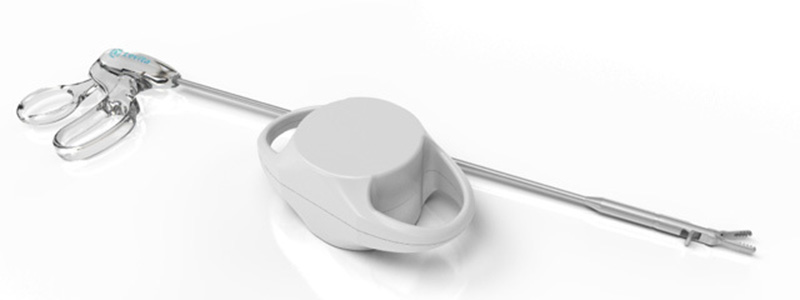Levita Magnetics, a company dedicated to improving the outcomes of surgical procedures through Magnetic Surgery, announced that the FDA has granted the company an expanded indication to market the company’s first-of-its-kind Levita Magnetic Surgical System for use in bariatric procedures. Initially indicated for use in gallbladder removal procedures, the shaftless Magnetic Surgical System reduces the number of incisions necessary for the indicated procedures.
The Levita System is designed to facilitate access and visualization of the surgical site, while minimizing invasiveness. In conventional laparoscopic procedures, shafted surgical instruments are introduced by fixed-position trocars inserted through incisions in the abdomen. The use of trocars is associated with risks relating to major bowel and vessel injury, incisional pain, bleeding, scarring, hernias and infection. In addition, shafted instruments can impair surgeon visualization by cluttering the operative field, cause instrument collisions, and restrict movement as a result of their fixed pivot point. The shaftless Levita System reduces the number of incisions and trocars necessary, while also providing surgeons the ability to move instruments without the constraints of a fixed-position pivot point.

(Image credit: Levita Magnetics)
“Magnetic Surgery with the Levita System will allow us to offer a less invasive alternative to our bariatric patients. Bariatric surgery patients are interested in new options that minimize incisions and result in better cosmetic outcomes, and the Levita System has been effective in delivering these results in our preliminary experience to date,” says Dana Portenier, MD, Chief of the Metabolic and Weight Loss Surgery division at Duke University Health System in Durham, North Carolina. “I have used the Levita System since its initial FDA clearance, and believe it is an important new option for patients electing to undergo bariatric surgery.”
According to the Centers for Disease Control and Prevention (CDC), nearly 40 percent of U.S. adults (93 million Americans) have a body mass index classifying them as obese. Long-term evidence from studies of bariatric surgery outcomes has demonstrated a significant benefit for weight loss as well as diabetes recovery, a lower risk of cardiovascular disease, and other metabolic and musculoskeletal benefits. There has been a 44 percent increase in bariatric procedures in the United States since 2011.
“This new indication is another exciting milestone for Levita and a significant step toward fulfilling our vision to enhance patient outcomes by minimizing the footprint of surgical procedures across multiple indications and broad patient populations,” says surgeon Alberto Rodriguez-Navarro, CEO and founder, Levita Magnetics. “We are pleased that our technology allows surgeons to offer a less-invasive alternative to patients considering bariatric procedures.”
To date, patients have undergone Magnetic Surgery at leading clinical centers including the Cleveland Clinic, UT Southwestern Medical Center, Stanford University, and Duke University, among others.




